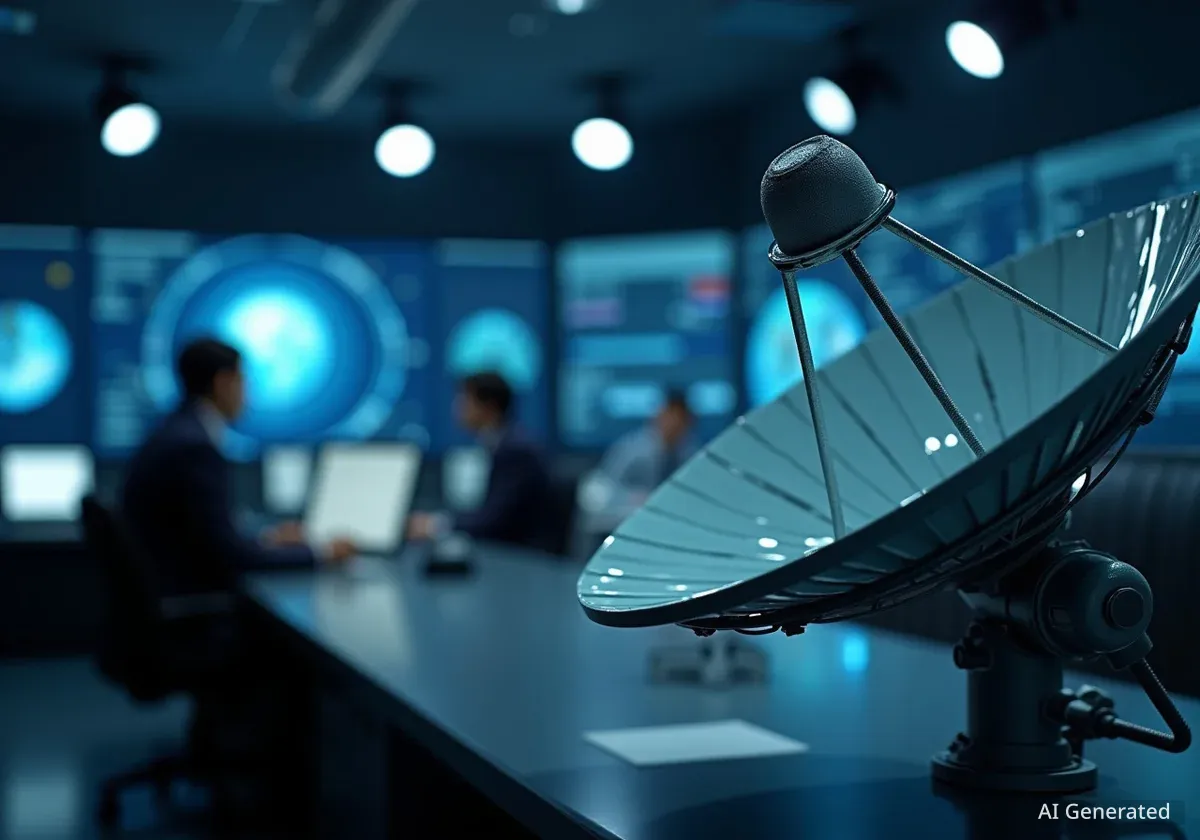Major satellite operators are calling on the International Telecommunication Union (ITU) to help establish reliable communication channels to manage the increasing risk of in-orbit collisions. Industry leaders from companies including SpaceX, Amazon, and GalaxySpace highlighted the urgent need for a centralized system to share operational data and contact information during a panel at the International Astronautical Congress.
Key Takeaways
- Satellite operators lack a reliable method to contact each other during potential collision events, increasing risks in orbit.
- Companies like SpaceX and Amazon are proposing the International Telecommunication Union (ITU) act as a trusted intermediary for sharing contact details and orbital data.
- Amazon's Project Kuiper reports it can only contact about half of the 1,500 active satellites that pass through its orbital path.
- There is broad agreement on the need for better communication, but debate continues on whether the ITU should create new regulations or simply facilitate information sharing.
A Growing Congestion Problem in Orbit
As thousands of new satellites are launched into low Earth orbit (LEO), the risk of collisions is becoming a primary concern for the space industry. Without established protocols for communication between operators, avoiding potential conjunctions becomes a significant challenge. This issue was a central topic of discussion among industry leaders in Sydney.
David Goldman, vice president of satellite policy at SpaceX, emphasized that the core problem is a lack of data sharing. He noted that some companies launch satellites into the operational orbits of other systems without any prior coordination.
“We see satellites getting launched into operational orbits of other systems without talking to each other, without sharing data,” Goldman stated. “That is the single most important thing you can do to help decrease risk in space.”
He clarified that the issue is not typically between large constellation operators. Major players often maintain close contact to ensure their systems can coexist safely. For example, SpaceX and Amazon coordinate extensively each time Amazon launches its Project Kuiper satellites, which must ascend through shells of SpaceX's Starlink constellation.
“SpaceX and Amazon work really closely on making sure that our satellites are working well together,” Goldman added. “We really have not had issues because we’re talking to each other closely.”
The Communication Black Hole
The primary danger lies with the large number of satellite operators who are difficult or impossible to contact. This creates a hazardous environment where collision avoidance maneuvers cannot be effectively coordinated.
A Critical Information Gap
Josef Koller of Amazon's Project Kuiper estimated that approximately 1,500 operational payloads regularly pass through Kuiper's orbital shells. However, the company has contact information for only half of them, leaving a significant blind spot in space traffic management.
Josef Koller, head of space safety and sustainability for Amazon’s Project Kuiper, echoed Goldman's concerns. He stressed that while collaboration with known partners is strong, the inability to reach other operators presents an unacceptable risk.
“That’s really not a very safe environment,” Koller explained. “It seems like such a simple thing to do to share your contact information or your email address so we can reach out to you... but that is the most critical item today that I see that we have not accomplished yet.”
This challenge is not unique to American companies. Peng Zhang, general manager of the solutions department at the Chinese satellite operator GalaxySpace, confirmed that his company faces identical problems. He pointed out a disconnect in the current international system.
“We always know who to contact for frequency coordination, but we don’t know who to talk to about satellite operations,” Zhang said, highlighting a gap in regulatory frameworks that prioritize spectrum management over operational safety coordination.
The ITU as a Potential Solution
To solve this communication breakdown, industry officials are looking to the International Telecommunication Union, a specialized agency of the United Nations responsible for information and communication technologies.
Who is the ITU?
The International Telecommunication Union (ITU) is a global body that allocates global radio spectrum and satellite orbits. Historically, its focus has been on preventing radio-frequency interference, but operators now believe its role could expand to include operational safety by facilitating communication.
Goldman suggested the ITU could serve as a neutral, trusted third party, which is crucial in an industry with geopolitical sensitivities. “Around the world, there’s trust issues between operators, between countries,” he said. “I think the ITU can play a pivotal role in trying to bring people together and share information in a trusted place.”
The ITU appears open to taking on this responsibility. Jorge Ciccorossi, head of the Space Strategy and Sustainability Division of the ITU Radiocommunication Bureau, confirmed that the topic is on the agenda for the organization's upcoming Space Sustainability Forum in Geneva.
“One of the things we’re going to coordinate among the key LEO operators is trying to exchange direct points of contact,” Ciccorossi announced. The plan involves asking member states and operators to submit contact information that the ITU can publish online for easy access. He emphasized that this transparency is a pillar of long-term sustainability in space.
Debate on Regulation Versus Facilitation
While there is a strong consensus on the need for a shared contact database, there is less agreement on whether the ITU should go further and create binding regulations for space operations.
Peng Zhang of GalaxySpace suggested the development of a “code of conduct” for satellite operators, though he did not provide specific details on what such a code would entail.
However, SpaceX's David Goldman urged caution against moving too quickly toward regulation. He warned that poorly understood issues could lead to ineffective or even harmful rules.
“Sometimes, when there is an effort to rush to regulation before people really understand the issue, you can have counterproductive rules,” Goldman warned.
He also pointed to the slow pace of the ITU's regulatory process. The World Radiocommunication Conferences, where such rules are made, occur only every four years. “That is a very slow cycle compared to what is happening in space right now,” he said. “If you try to get regulations on this, you’re going to miss the issues by the time you get there.”
Instead, Goldman argued the most immediate and effective step would be for the ITU to focus on its role as a facilitator of communication. He concluded that establishing a trusted platform for information exchange “is the single best thing that we can do to lower the risk.”





